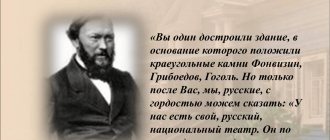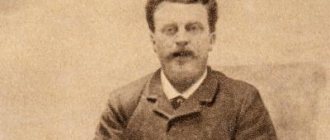Oratory experience
You can learn to speak only by speaking. (Skilef)
…………………………
People are born poets, they become speakers. (Cicero)
……………………….
All good speakers started out as bad speakers. (Ralph Emerson)
…………………………………
My basic rule is to speak slowly and simply, so that my audience has the opportunity to follow and think about what I say
(Margaret Chase Smith)
………………………………….
Ability to convey a message
Speak in such a way that you cannot be misunderstood.
(Quintilian)
………………………………
A great mind will show its strength not only in the ability to think, but also in the ability to speak. (Ralph Emerson)
……………………………..
Words arranged differently take on a different meaning, thoughts arranged differently produce a different impression (Blaise Pascal)
…………………………….
Success is the product of interesting thoughts and the ability to convey them. Speak not in a way that is convenient for you to speak, but in a way that is convenient for the listener to perceive.
Simplicity is not easy ( Skilef )
…………………………….
Everyone can speak honestly, but speaking logically, intelligently and adequately is a talent that must be possessed. (Michel de Montaigne)
……………………………..
Speech is the mirror of the soul; how a person speaks is what he is. (Publius Sirus)
……………………………….
The ability to make an impression with words
We need to say today only what is appropriate today. Put everything else aside and say it at the appropriate time. (Horace)
………………………….
A beautiful thought loses its value if it is poorly expressed. (Voltaire)
………………………………..
Speaking without thinking is like shooting without aiming.
(Miguel de Cervantes and also Thomas Fuller)
………………………………
He who cannot speak will not make a career.
(Napoleon Bonaparte)
There are three categories of speakers: some you can listen to, others you can’t listen to, and others you can’t help but listen to. (Archbishop Magee)
…………………………………..
The speech should have a good beginning and an effective ending. But the main thing is that these two parts are closer to each other (Anthony Eden)
………………………………………….
True eloquence is the ability to say everything that is needed, and no more than is needed. (Francois De La Rochefoucauld)
…………………………….
A catchword differs from a catchphrase due to its larger flight radius.
…………………………
The winged word flies because it is free from ballast.
……………………………
A thought is called winged not only because it flies, but also because it calls for flight.
………………………………
Plato: “Every speech must be composed like a living being - it must have a body with a head and legs, and the torso and limbs must fit together and correspond to the whole.”
………………………………
Aristotle: “The word is man’s most powerful weapon.”
……………………………..
Read here to learn how to develop your speech using tongue twisters.
…………………………….
Demosthenes: “Gestures, gestures and gestures.”
……………………………
Marcus Tullius Cicero: “He is truly eloquent who expresses ordinary things simply, great things sublimely, and average things with moderation.”
………………………………
Marcus Tullius Cicero: “The greatest achievement of an orator is not only to say what is necessary, but also not to say what is not necessary.”
……………………………………..
Marcus Tullius Cicero: “The best speaker is the one who, through his words, both teaches his listeners, and gives pleasure, and makes a strong impression on them.”
……………………………………
Marcus Tullius Cicero: “Before you release words from the lower part of your head, pass them through the upper part of it.”
………………………………
Quintilian: “Speak in such a way that you cannot be misunderstood.” “Fortitude and passion make people eloquent.”
…………………………………
Skilef: “A good speaker is one who knows how to speak simply about complex things”
……………………………….
Russian proverbs
Don't say everything you know, but know everything you say.
A living word is more valuable than a dead letter.
The field is red with millet, and the conversation is with the mind.
Don't be afraid of the knife, just the tongue.
And a good word is good once.
It's better not to tell than to retell.
………………………………………….
Ukrainian proverb
Kind words also feed vipers.
……………………………………
Eastern proverb
If you could build a house with a scream, then a donkey would build an entire street.
…………………………………..
Chinese proverb
Speak only when you are calm.
Peter I: “I instruct the gentlemen senators to keep their speech not according to what is written, but in their own words, so that everyone can see their stupidity.”
………………………………
Confucius: “He who shoots a lot is not yet a shooter; he who speaks a lot is not yet an orator.”
……………………………….
Hegel: “Speech is an amazingly powerful tool, but you need to have a lot of intelligence to use it.”
…………………………………
Winston Churchill: “The speaker must exhaust the subject, not the patience of the audience.”
…………………………..
N.A. Nekrasov: “Follow the rule stubbornly: so that words are cramped, thoughts are spacious.”
………………………………….
A.P. Chekhov: “In essence, for an intelligent person, speaking poorly should be considered the same indecency as not being able to read and write, and in the matter of education and upbringing, learning eloquence should be considered inevitable.”
………………………………..
Paul L. Soper: “If the topic has taken hold of you, perhaps it will take hold of the listeners.” “Great thoughts come from the heart”
…………………………..
Aristophanes: “He is a true sage who knows how to say many things briefly and clearly”
………………………..
Don’t bother your interlocutors, shut up before they shout “finish it!” Saadi
………………………………
Oratory is unthinkable if the speaker has not mastered the subject he wants to talk about. Cicero
……………………………….
Experience is, and is considered, the best teacher of eloquence. Pliny the Younger
……………………………..
Figurative presentation makes the subject of speech visible. Cicero
……………………………..
There are three ways to answer questions: say what is necessary, answer with friendliness, and say too much. Plutarch
……………………………….
Clarity is the main virtue of speech. Aristotle
…………………………….
The ultimate goal of eloquence is to persuade people. Chesterfield F.
…………………………..
The goal of oratory is not truth, but persuasion. Macaulay T.
………………………………..
The greatest virtue of a speaker is not only to say what is necessary, but also not to say what is not necessary. Cicero
………………………………..
All good speakers started out as bad speakers. Stanislav Jerzy Lec
…………………………………
Speak smartly, the enemy is listening. Lord Brabazon
………………………………
If a speaker cannot do it in twenty minutes, he better leave the podium and sit down to write a book. William Norman
………………………….
If listeners look at their watches, that's okay. It's worse when they start shaking the watch to see if it has stopped. Samuel Butler
……………………………..
The best speaker is the one who is able to say the least possible in the most words. Vladimir Voinovich
…………………………
A rally is when a lot of people gather and some say what they don’t think, while others think what they don’t say. Julian Tuwim
………………………..
You need to speak loudly to be heard. You need to speak quietly to be listened to.
A political speaker needs powerful lungs and a weak head. Marcus Tulius Cicero
……………………………..
Speech development in children
Mastering your native language is the most important acquisition of childhood.
Author: Kupriy Svetlana Ivanovna, teacher of the 1st category, MBDOU, Shakhty, Rostov region. "Kindergarten No. 70." Description: this material will be useful to teachers and interested parents. Goal: to activate adults’ interest in the problem of speech development in preschoolers.
Dear colleagues, I bring to your attention an article devoted to the development of speech in preschoolers. In my deep conviction, full communication is the most important thing in a child’s development. And it, communication, can become complete only through speech. On the development of children's speech.
“Children’s speech, which is beautiful in itself, also has scientific value, since by studying it, we thereby discover the bizarre patterns of children’s thinking.” K. I. Chukovsky. The gift of speech is a unique property of the human race. It is with the help of speech that people communicate with each other, exchange thoughts and feelings, and create works of fiction and scientific works. Speech is included in all manifestations of human mental activity. With its help, the experience accumulated by previous generations is transmitted, both in the language itself and in various other spheres of human life. Society always highly values people who have competent, expressive speech, who can speak beautifully, and who are able to influence the feelings and minds of their interlocutors. However, it would be a mistake to consider speech as something given to us in a ready-made form. Watching children, I am convinced of how long and difficult their path is from the first spoken sounds to meaningful words and expressions. And without our help, the help of teachers, they will not be able to overcome this path. The sad thing is that not all adults are fluent in speech. And if we cannot help adults due to certain circumstances, then the correct, free speech of children is our concern. It is known that preschool age is a period of intensive mastery of a child’s native speech. In a short period of life lasting just a few years, a child goes through an amazingly rapid path from the first unformed babbling sounds to freely operating with a rich set of words and the grammatical structure of the language. Mastery of the native language is one of the most important acquisitions of a child in preschool childhood. Speech is associated with knowledge of the surrounding world, the development of consciousness and personality. The formation of speech activity is the process of interaction between a child and people around him using material and linguistic means. Speech is formed during the child’s existence in a social environment. Its emergence and development are caused by the needs of communication, the needs of life. Contradictions that arise in communication lead to the development of speech ability, to the mastery of ever new means of communication, forms of speech. Children's speech has been of interest since ancient times. Even in the works of the Roman orator and teacher Quintilian, one can find valuable remarks that have not lost their significance about the uniqueness of children’s speech and conclusions that speech is the foundation for the formation of a child’s personality. The thinker and humanist Ya. A. Komensky believed that a child should be taught three most important things: reason, action and speech - “teaching a child to understand correctly, do correctly and speak out correctly.” The philosopher, writer and teacher J. J. Rousseau considered the most important period in a person’s life to be the period when his speech develops. He investigated the issue of the peculiarities of the development of children's speech, even the reasons for delayed speech development, and advised making the learning process systematic and consistent, consisting of various exercises to develop clarity, clarity and coherence of speech. In the 19th century, interest in children's speech intensified - it was researched, studied, and described not only by famous scientists, but also by writers. Thus, the creator of the method of initial teaching of the native language, K. D. Ushinsky, noted: children very early begin to show interest in language, which is an important sign of intelligence. “The native word is the treasury of all mental development and the treasury of all knowledge,” argued K. D. Ushinsky. What does it mean to develop a child's speech? The answer to this question is both extremely simple and at the same time extremely complex. Of course, developing a child’s speech means teaching him to talk. However, how the ability to speak arises and what it consists of is the whole difficulty. Speaking means having a certain vocabulary, actively using them, being able to construct statements, formulating your thoughts, understanding the speech of others, listening and being attentive to them, and much more. The child learns all this with the help of an adult in the preschool years. Speech as such does not develop at all, regardless of the role it plays in the child’s life. In itself, “speech acquisition” is not an independent task of education. And at the same time, without mastering speech and without special work aimed at its development, there cannot be a full-fledged mental and personal development of the child. Mastering speech restructures the entire mental life of a preschooler and makes possible many truly human forms of behavior. Timely and complete development of speech in preschool childhood is one of the main conditions for the normal development of a child. Any delay and any disturbance in the development of a child’s speech affects his behavior, as well as his activity in its various forms. That is why I consider the development of children’s speech to be the basis of a teacher’s work and I try to pay as much attention to this issue as possible. After all, speech is a unique, universal and irreplaceable means; it develops as a means of many types of human activity. It is impossible to develop a child’s speech without including it in one activity or another. And I believe that my task, when developing children’s speech, is not only and not so much to tell them new words, to demand repetition of their stories, but, what is much more important, in my opinion, is to use speech as a necessary and irreplaceable means of this or that activity - games, construction, perception of works of art, etc. After all, the development of all forms of children's activity leads to the development of their main means - speech. And therefore, in my work with children, I pay special attention to the development of their speech in everyday life, unobtrusively and without coercion. And a special place here is occupied by lullabies, nursery rhymes, sayings, tongue twisters, counting rhymes, and riddles. This is due to the age characteristics of preschoolers, primarily the properties of their memory, as well as the ability to concentrate attention only for a short time. For example, when talking with Annushka, I tell her: “We have a girl, she has blond hair, gray eyes, dressed in a blue dress, white knee socks, slippers.” The girl thought about it, but noticing my smile, she realized that it was about her. “Now tell me your riddle,” I suggest. "About what?" - asks Annushka. “Whatever you want,” I answer. The girl tries to make an answer riddle about me, but she doesn’t succeed. Then her gaze falls on the ball lying on the floor, and she says: “Red, round, big. They play with it." “Elastic, rubbery, jumps across the floor,” I add. Children do not immediately begin to understand the meaning of even a simple riddle. And to help children understand the meaning inherent in riddles, a variety of games to describe a wide variety of objects located indoors and outdoors help. The games “Who can name the most”, “Who can say more about the object”, “What is it made of”, etc. help me with this. In addition, together with the children we come up with other games that require not only to name the object, phenomenon, but also describe as fully as possible, list the signs and qualities, details, notice the color and its shades. To make the game more interesting, I, along with the children, take turns describing the objects around me, making games like “ what is light, heavy, narrow, wide, long, round, square”,
etc. over and over again more difficult. I use any suitable situations in order to play, talk with children, enrich their vocabulary.
For example, while walking in the park, I make riddles: “ The white tablecloth covered the whole earth”
or
“Without hands, without an axe, the hut was built
.
I try to draw the children’s attention to the fact that although there are few words in the riddle, the features of the object or phenomenon are clearly noted in it. Some riddles enrich children's vocabulary, help them see the figurative meaning of words, and teach imaginative thinking. For example, “ The red maiden sits in a dungeon, and the braid is on the street
.
Children, as a rule, quickly find the answer, but find it difficult to prove it. To the question “Why?” They usually answer: “Because it’s red.” Then I introduce doubt into the children’s minds: “Strawberries are also red - so this is also the correct answer?” - and I draw their attention to other signs indicated in the riddle. When the children understand that “sits in prison” means “grows in the ground,” I ask the question: “Isn’t this a radish? After all, red also grows in the ground,” while trying to draw attention to the fact that “she is sitting in prison,” so masculine objects immediately disappear. It is important for me that children understand: even seemingly insignificant details play a significant role in the proof. Then I pay attention to the fact that “she” is growing in the garden bed. “Could it be beets? After all, she is also red,” I ask, let the children speculate. It would not be amiss to explain to children that the phrase “red maiden” also has another meaning – beautiful. This is how children learn to think, reason, and express their thoughts. And how figurative, laconic, musical, rich in various sound combinations is the language of proverbs and sayings: “If you hurry, you will make people laugh,” “You can’t pull a fish out of the pond without difficulty.” I learn a lot of nursery rhymes, sayings, and tongue twisters with the children and, when the opportunity arises, I use them in conversations with the children. Pronouncing sayings and tongue twisters is useful for all children, even if at first glance everything is fine with their diction. Preschoolers' speech apparatus is not yet sufficiently coordinated; some children do not pronounce words clearly, are in a hurry, and swallow endings. Others, on the contrary, speak slowly and draw out their words unnecessarily. Therefore, to develop speech and eliminate some speech problems, I actively use tasks containing sayings and tongue twisters. In my opinion, counting rhymes are also indispensable for the development of children’s speech, due to their special ways of rhyming, as well as their frequent use in everyday play activities. I introduce children to both literary and folklore counting rhymes and show them how to use them correctly in everyday activities. It is difficult to overestimate the importance of the bright figurative language of poetry, fairy tales, and stories for the development of a child. Literary prose and poetry awaken in a child the best feelings, such as kindness, sympathy, empathy, teach him to notice the mood, state of characters, cause a protest against evil, injustice, a desire to protect and help. I read a lot of Russian folk tales, fairy tales of other nations, stories, and poems to children. Children really like to memorize poems about nature. It’s not for nothing that preschoolers are called whys. All their questions are aimed at quenching the thirst for knowledge - to learn about everything as quickly as possible, to comprehend everything. Why does it rain, thunder, why doesn't the sun fall, when is tomorrow, etc., etc. etc. I never brush off children's questions, although sometimes it is tiring to answer them. But we must answer, because without satisfying children’s “whys,” we suppress curiosity, do not give reasons for further reflection, and slow down the development of speech. Among all the functions of speech in preschool age, the most important, the main means, in my opinion, is communication with other people. And its development during this period is largely determined by the development of communication with adults. In communication with an adult, a child masters speech norms, masters the rules of human speech, learns new words and phrases. I believe that children's speech is very dependent on the forms and characteristics of the speech of the people with whom they live and communicate. After all, by imitating those around them, children adopt not only all the subtleties of pronunciation, word usage, and phrase construction, but also those imperfections and mistakes that are found in the speech of adults. But the child’s speech culture, according to L. D. Uspensky, “is connected by a thousand threads with the real speech culture of his older environment.” Children are surprisingly sensitive to how adults talk - calmly or irritably, moderately loudly or loudly, respectfully or with disdain, and, imitating, copy. Listening to how my students speak, I notice in their intonations and word usage the speech characteristics of people close to them. Children convey gestures, facial expressions, and use characteristic figures of speech often used by loved ones. One of the conditions for the development of correct speech, in my opinion, is the correct figurative speech of adults, both parents and educators. Our speech should be a model for children. Adults cause great harm to the development of speech if they imitate children's babble and often use words distorted by the child, which he is not yet able to pronounce. Every word of parents should be meaningful, helping the child to explore the world around him and master the language. Therefore, I try to convey to parents the idea that the richer their vocabulary, the more accurate and expressive their speech. I always advise parents to teach their children the best examples of their native language, from an early age to develop interest and love for folk tales, proverbs, sayings, riddles, and the best examples of children's literature. After all, all this enriches children’s figurative speech and introduces them to the national culture. Language is the confession of the people, in it one can hear their nature, their soul and native way of life... (P. A. Vyazemsky) Unfortunately, in our time, parents often forget about this and let the development of the child’s speech take its course. A modern child spends little time in the company of adults, more and more at the computer or watching TV, and rarely hears stories and fairy tales from their parents. But fiction is a magical world into which a child plunges with pleasure, and a source of information about the world around him, and a necessary condition for normal speech development. What a pity that the good tradition of old Russian intelligent families - collective reading aloud - has become a thing of the past. After all, it was the common experiences of reading that united the family, gave rise to common interests, and fostered a love of literature. When talking to an adult, children do not make much effort to be understood, supported, or answered. Adults already understand everything. And a peer will not try to guess the desires and moods of his friend, look closely, listen, and remember.
We recommend watching:
Workshop for parents of the 2nd junior group Lesson in the development of written speech based on the story by V. Astafiev “Belogrudka” Summary of educational activities on speech development on the topic: Winter in the preparatory speech therapy group Consultation for parents on the speech development of older preschoolers
Similar articles:
Development of fine motor skills in children






